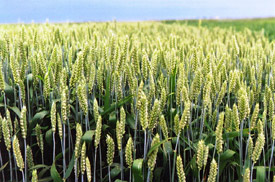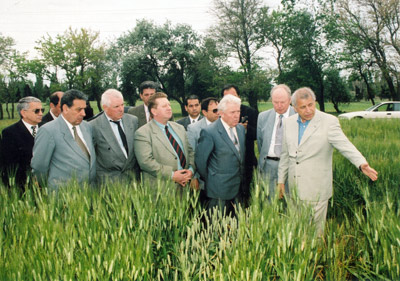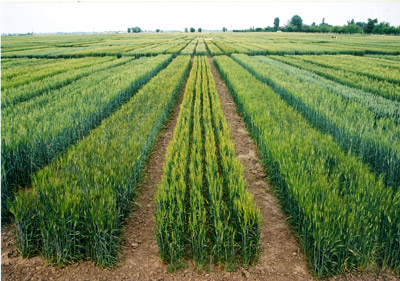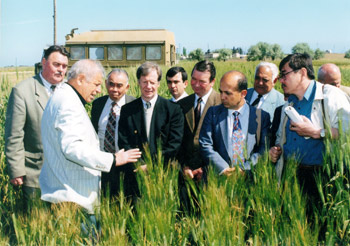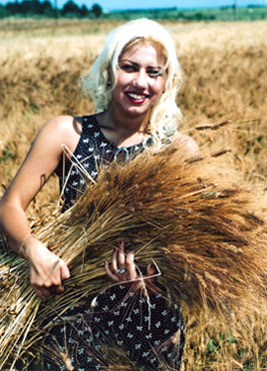Last news
Announcements
20.06.2008
On June 27, 2008 the talk of famous Japanese scientist in the field of photosynthesis, Professor Murata N. will be held in the Institute of Botany.
20.06.2008On June 25, Tarlan Mammadov Hazarpasha oglu will defend his dissertation entitled "Identification, characterization and ...
→ 20.06.2008The International Conference and Workshop on "Bioinformatics: Current Progress and Practical Applications" devoted to the 80th anniversary of J. Aliyev...
→
Scientific achivements
 НАУКА
ИСТИННА20.06.2008
НАУКА
ИСТИННА20.06.2008(Документальная хроника)
В тяжелое для страны время политических игр трудный путь борьбы академика
Джалала Алиева во имя принципов чистоты науки и торжества истины
→ GARAGYLCHYG-2 DURUM WHEAT VARIETY
13.06.2008ORIGIN: The variety was released at Research Institute of Agriculture crossing local "Garagylchyk" cultivar with "Norin-10" by a multistage selection.
→
News
Elevated levels of carbon dioxide (CO2) could promote the growth of purple and yellow nutsedge—quick-growing invasive weeds that plague farmers and gardeners in many states.
That's the conclusion of plant physiologist Hugo Rogers and his colleagues at the Agricultural Research Service (ARS) National Soil Dynamics Laboratory (NSDL) in Auburn, Ala.
Marine bacteria have the capacity to take up and capture carbon dioxide with the help of sunlight. This has been discovered by researchers at Kalmar University in Sweden in collaboration with colleagues in Spain, Australia, and Russia. The finding is being published in the internationally respected scientific journal PNAS. This can be compared to a simple form of photosynthesis, where marine bacteria use energy from sunlight to absorb carbon dioxide. It was previously known that bacteria in oxygen-starved lakes can have this capacity, but it's new knowledge that bacteria in the open seas can do so as well.
ScienceDaily (Jun. 12, 2008) - As a general rule, your DNA is not something you want rearranged. But there are exceptions - especially when it comes to fighting infections. Since the number of microbes in the world far surpasses the amount of human DNA dedicated to combat them, specialized cells in the immune system have adopted an ingenious, if potentially disastrous, strategy for making antibodies. These cells, called B lymphocytes, intentionally mutate their own DNA to ward off invaders they have never seen before.
(Santa Barbara, Calif.) –– An international team of scientists has published a new analysis showing that as plant species around the world go extinct, natural habitats become less productive and contain fewer total plants –– a situation that could ultimately compromise important benefits that humans get from nature.
The article is to appear in the online issue of the Proceedings of the National Academy of Sciences the week of Nov. 5.



